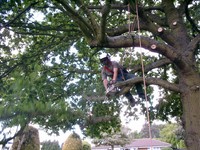SOCIAL HOST LIABILITY – PART TWO
This is part Two of a two part blogpost, in which Boston Personal Injury Lawyer, the attorney, analyzes liability issues in the recent drowning death in Andover, Massachusetts.
It now appears that a parent was present in the Andover home where an overnight teenage party ended with the drowning death of one of the female guests. The Essex County District Attorney has convened a grand jury, which is taking testimony of persons present to determine if any crimes were committed related to the death (For Additional Information see February 19, 2009 Blog, Social Host Liability -Part One ).
 If the evidence indeed demonstrates that these underage students were permitted to consume alcohol, or more seriously, if a parent procured or supplied the alcohol for the party, then both criminal and civil liability may attach. However, the issue of whether premises liability can attach to these facts is not as clear as it may seem, as no Massachusetts appeals court has expressly articulated a position on these particular facts.
If the evidence indeed demonstrates that these underage students were permitted to consume alcohol, or more seriously, if a parent procured or supplied the alcohol for the party, then both criminal and civil liability may attach. However, the issue of whether premises liability can attach to these facts is not as clear as it may seem, as no Massachusetts appeals court has expressly articulated a position on these particular facts.
The Massachusetts Supreme Court has long held that a social host can be found liable for injury in one particular instance. In a 1986 decision,
Mc-Guiggan v. N.E. Tel. and Tel. Co. , the Court created a common law theory of liability of a social host “to a person injured by an intoxicated guest’s negligent operation of a motor vehicle where a social host who knew or should have known that his guest was drunk, nevertheless gave him or permitted him to take an alcoholic drink and thereafter, because of his intoxication, the guest negligently operated a motor vehicle causing the third person’s injury.”
The duty is imposed because it is believed that the social host knew or should have known that the guest was drunk and was in a position to protect an innocent third party from the harm. In Mc-Guiggan , the Court elected not to impose liability even though the 18 year old operator of the motor vehicle admitted he had consumed alcohol at a graduation party, and pleaded guilty to operating under the influence, after his passenger and friend died from injuries suffered when his head hit a concrete post as he put leaned out of the car window to vomit.
In Mc-Guiggan , based on testimony of the homeowners and others, the Court determined that the evidence was legally insufficient to demonstrate that the hosts knew or should have known that the driver was so impaired that he could not or should not be driving. And this was so even though the blood alcohol level of the driver was still above the legal limit 3 hours after the accident.
 Boston Accident and Injury Lawyer
Boston Accident and Injury Lawyer



